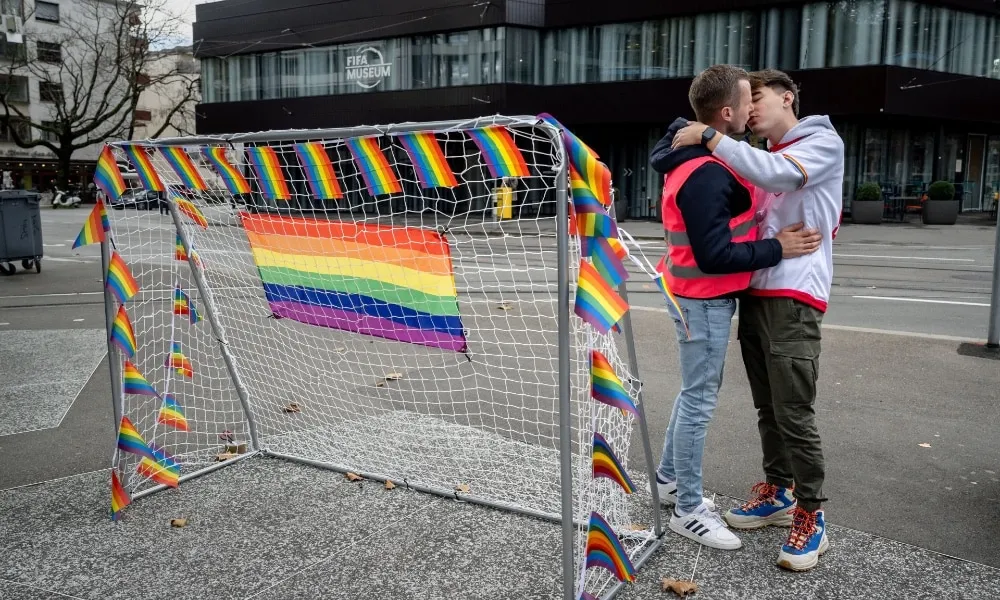Qatar World Cup: ‘Safe houses’ being considered for women and LGBTQ+ fans

Footballers from the Wales team will be wearing OneLove campaign armbands during the World Cup in Qatar. (Getty Images/Michael Steele)
The Football Association of Wales (FAW) is considering creating “safe houses” for women and LGBTQ+ supporters visiting Qatar for the World Cup, due to concerns around the country’s human rights record.
In an interview with Welsh TV channel S4C, Jason Webber from FAW said: “We’ve put many questions to the Supreme Committee and the Qatari Government.
“They are very firm on this stance that everyone is welcome and safe, however we can’t guarantee that as a national association.
“There are discussions ongoing for having almost a safe house area for women or those in the LGBTQ+ community, but it’s just providing as much information for those fans who are travelling.”
It follows Welsh first minister Mark Drakeford announcing that he will attend the World Cup in order to “shine a light” on Qatar’s human rights record.
Drakeford’s office have confirmed he will still attend events at the World Cup, where Wales will firstly play against the USA on Monday, 21 November.
A Welsh Government spokesperson told PinkNews: “This World Cup has shone a light on the critical issue of human rights and we will add our voice to those of others and work together to promote the values of inclusivity and respect for human and workers’ rights.”

A protest took place against the World Cup in Qatar outside the FIFA museum in Zurich (Getty Images)
FAW officials recently confirmed that players from Wales will be free to speak out about any issues that concern them during the World Cup.
Football governing body FIFA, however, has told players ‘don’t hand out moral lessons’ and ‘focus on football’ while in Qatar.
Head of international affairs at the FAW, Mark Evans, previously announced that many of the association’s staff won’t attend the country due to its stance on gay rights.
“We had a briefing with players after the last game with Poland and they were told they will have a forum to speak on any topic they want during press conferences.”
“Some might choose to say something during press conferences, others won’t, it’s up to them.”
Qatar’s penal code
The host nation’s criminalisation of LGBTQ+ people, alongside restricted rights for women and migrant workers has seen backlash against the country mount.
Under Qatar’s penal code it continues to punish same-sex relationships with up to seven years imprisonment, while queer Muslim men, under Sharia law, can be punished with the death penalty.
Women also face discrimination in the country and under its guardianship system, they remain tied to a male guardian from whom they must seek permission for key life decisions such as studying abroad.
A spokesperson for the World Cup Supreme Committee said: ‘We have always said that this is a World Cup for all.
“Everyone is welcome – regardless of race, religion, gender or sexuality – and we’re excited to introduce the world to Qatar’s rich Arab culture and traditions.”
Ahead of the World Cup, which kicks off on 20 November, chief executive of the Football Association (FA), Mark Bullingham, promised that fans will not face arrest for holding hands or kissing at the World Cup.
But these assurances haven’t been enough to ease queer people’s concerns about the possibility of being prosecuted in the country.
Following the assurances Qatar’s ambassador to the UK has said LGBTQ+ couples can “hold hands” but should be mindful of “public displays of affection”.
PinkNews has contacted FAW and Mark Drakeford for further comment.

